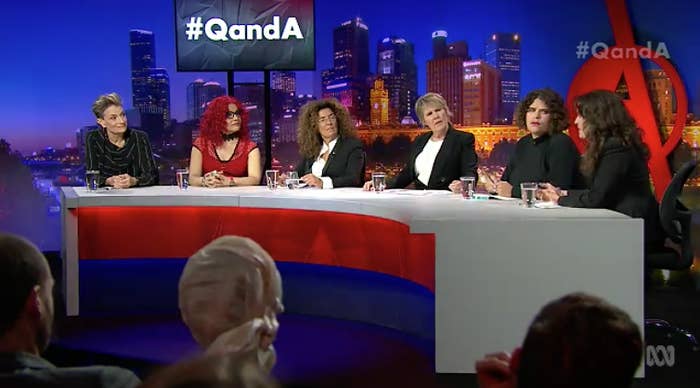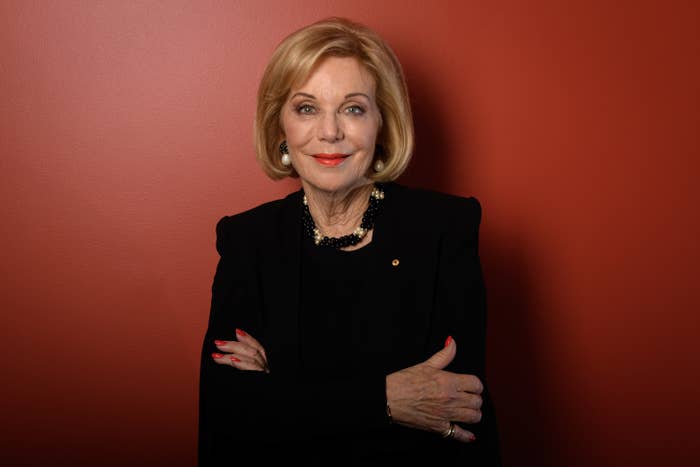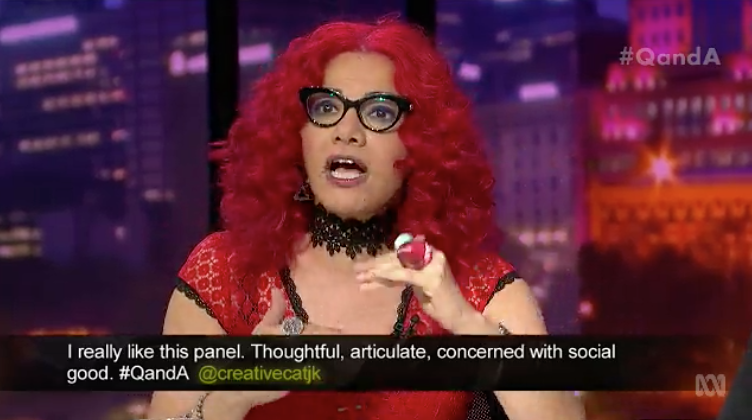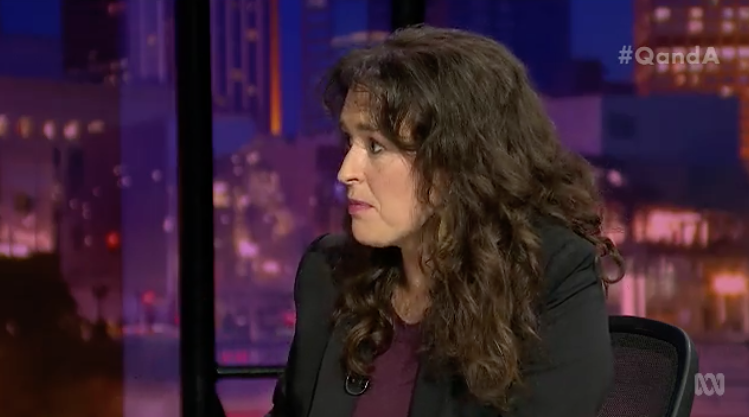
A feminist writer whose comments sparked an "investigation" by Australia's national broadcaster says she was not inciting violence, and that people are angry because the panel was a "big 'fuck you' to the white patriarchy".
The ABC is investigating whether editorial standards were breached in a special episode of Q&A that featured speakers from "unapologetically feminist" ideas event Broadside.
Egyptian-American journalist Mona Eltahawy said on the program: “How many rapists must we kill until men stop raping us?”
When asked whether she was "promoting violence" Eltahawy told host Fran Kelly: “I’m saying violence has been owned by the state, given by the stage, allowed to continue unchecked mostly by men and especially by privileged men. So how long do I have to wait to be safe?”

ABC chairwoman Ita Buttrose told The Australian that the episode would be pulled from all platforms (it is off iView, but still on the ABC website) while the broadcaster's managing director David Anderson said the language used was "provocative" and he understood "why some viewers found elements of this episode confronting or offensive".
"I'm not saying go out and kill people," Eltahawy told BuzzFeed News.
"When I ask 'how many rapists must we kill before men stop raping women?', mostly white men focus on the first part of the sentence, which is a theoretical question because I'm not going out there killing anybody, and they totally ignore the second part of my sentence."
The Australian Communications and Media Authority said it has received 53 complaints about the episode.
"When I talk about imaginary violence against men, everyone’s like, 'Oh, my God! Mona wants us to kill men,' and I’m just asking you to imagine a scenario that is the daily reality for women everywhere."@monaeltahawy #QandA
"I’m guessing most of which came from white men," Eltahawy said. "When you get enough white men whining and complaining about something people listen… much more than they do to the actual hard facts and injustices that we brought up during the episode about violence against women and violence against Indigenous people and about ageism."
The makeup of the panel was a "big 'fuck you' to the white patriarchy", she said.
"[The panel] was five women and one non-binary person and not a single white man so I think that played a massive role in the all of the backlash, the investigation and Paul Fletcher’s statement," she said. "You have women and non-binary people telling you about injustices and all of the white men are saying hold on here you are upsetting the boys."
The communications minister Paul Fletcher has said the investigation is "appropriate" and Eltahawy said she couldn't believe Fletcher had "jumped into the fray".

"I am from [Egypt] where ministers jump in all the time to try to curb freedom of expression and here is your minister in a democracy called Australia where you last year had raids on the media," she said. "In a country where your prime minister, who I called out during Q&A, is talking about banning boycotts and curbing protests."
Columnists have pointed out that Eltahawy swore a lot and host Fran Kelly issued a profanity warning at one point.
"[On my first Q&A appearance in 2011] I asked the producers 'can I say fuck?' and they said ‘we don’t see any problem with that'," she said.
"I’ve always said fuck on the ABC. What is really profane here: me saying fuck 10 times or violence against women and girls and non binary people?"
On Monday Eltahawy flies out of Australia but hopes Australians will ask themselves a "difficult question": 'What does this say about the freedom of expression in Australia not just the freedom of expression of white supremacists but the freedom of expression for those of us who don't often get those platforms?"

Panellist and investigative journalist Jess Hill said she has spent the past four years "agonising" over how to speak to both women and men about violence while researching her book See What You Made Me Do about Australia's gendered violence crisis.
"My entire focus is on reducing violence, not on exacerbating it," Hill told BuzzFeed News. "But am I radically offended by Mona’s thesis of justifiable violence? No, because I understand that we can all have different views, and they are shaped by our experiences, our cultures, our upbringings."
Hill said she wasn't threatened by Eltahawy expressing a "strong opinion", even if she doesn't advocate for the same thing.
"That’s the beauty of having a platform for divergent views like Q&A," she said. "Nobody was inciting violence — they were expressing frustration, anger, and grief over the pandemic of violence against women, and the ongoing violence from colonisation."
Australians are angry and hurting because they have demanded their elected representatives do something about violence, but are getting "lip service in return", she said: "People are being harmed, traumatised, killed. What is an hour of occasional swearing and fiery views compared to that?"
Following a fiery #QandA on Monday night, @assafiri_hana has more to say.
Indigenous screenwriter Nayuka Gorrie said on the panel, “When you say violence begets violence, it’s almost sounding like it’s a level playing field which it’s not."
Following the episode, a video of another panellist, business leader Hana Assafiri, was posted on the Q&A Twitter page, in which she said she did not agree with the panel's comments about violence.
